← Back to Reviews
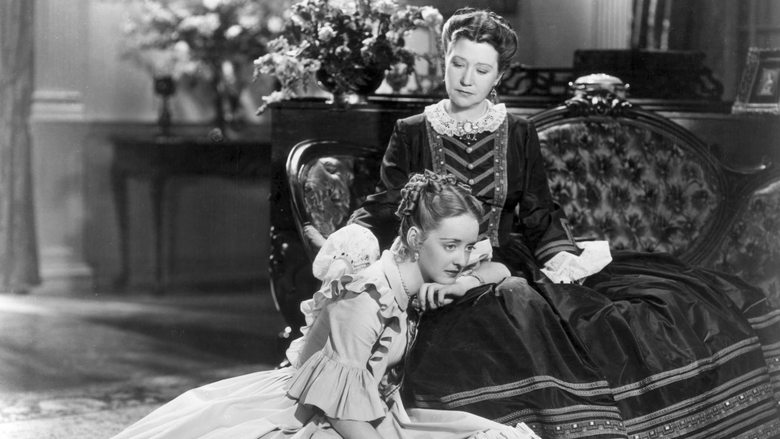
in
Jezebel
The year before Vivien Leigh brought the scheming and manipulative Southern Belle Scarlett O'Hara to the screen, Bette Davis brought another scheming and manipulative Southern Belle to the screen named Julie Marsden in an equally epic soap opera called Jezebel that won Davis her second Oscar for Outstanding Lead Actress.
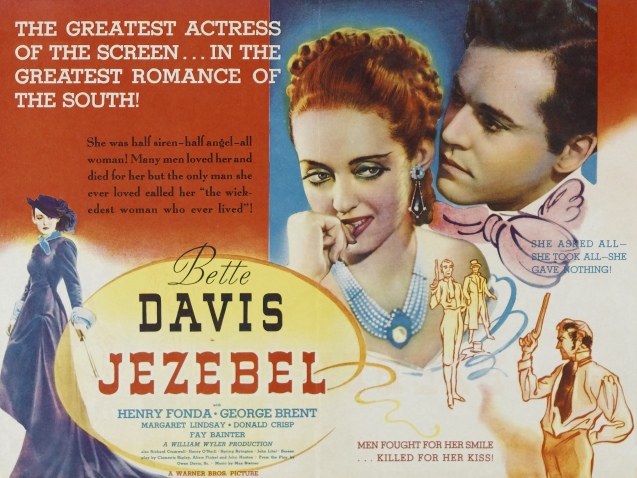
It is 1850's New Orleans where we meet Julie Marsden, a flighty and wealthy Southern socialite who really doesn't care about what's going on between Yankee abolitionists and southern bankers or the yellow fever epidemic that is making its way down south. Julie has never lacked for male attention, including the dashing Buck Cantrell (George Brent) and a handsome banker named Pres Dillard (Henry Fonda). Pres is considering marriage to Julie until she embarrasses him at a prominent social event by wearing a bright red dress to a ball where women are supposed to wear white. Pres manages to embarrass Julie right back but it eventually spells the end of their relationship and as they part, Julie and her Aunt Belle (Fay Bainter) are forced to move because of the epidemic and Julie has become a social hermit until reunited with Pres, but is shocked when Pres shows up with a pretty young wife named Amy (Margaret Lindsay).
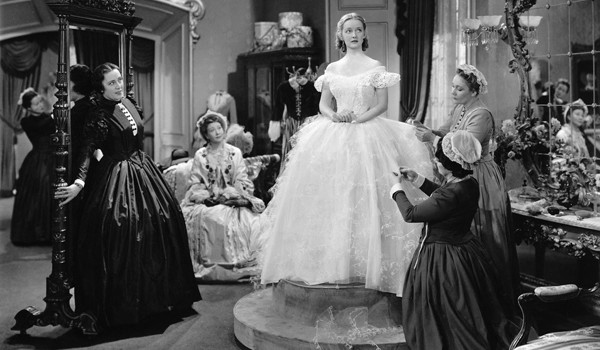
William Wyler, who would later direct Davis in The Letter and The Little Foxes, not to mention win three Best Director Oscars, has already begun to show his affinity for cinematic storytelling with this intimate tale told on a grand scale. He also displays as very special understanding of the extraordinary actress cast in the title role and what she is capable of. It's obvious that Wyler had a very specific vision about Julie Marsden and that Davis understood said vision, doing exactly as the director has instructed. Davis was known for independent spirit as an actress but it's clear that Davis is under Wyler's thumb and feels safe there, where she was able to produce a performance of such delicacy and focus that it won her a richly deserved Oscar.
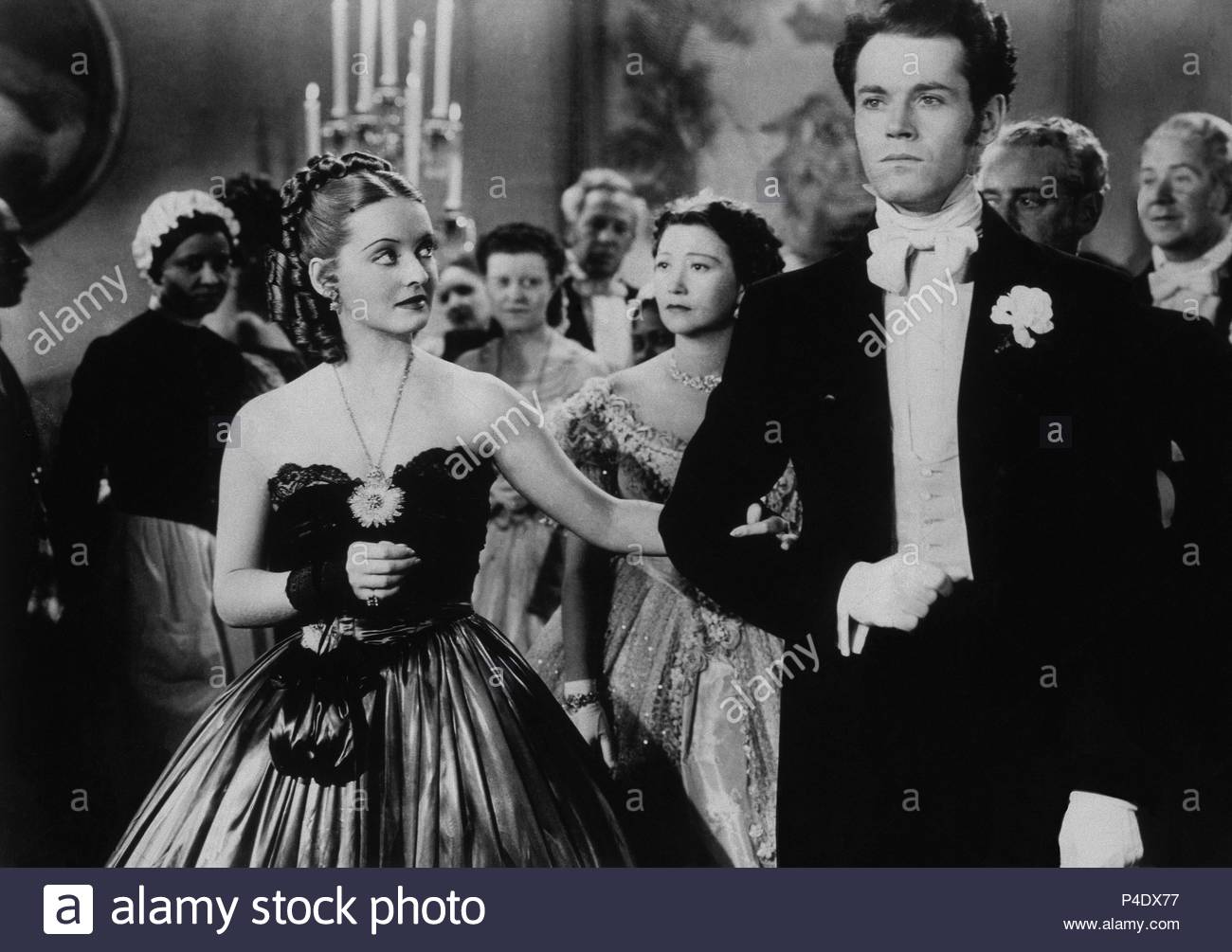
Wyler is to be applauded for bringing a story like this to the screen at a time when the only thing that anyone was talking about in Hollywood was the upcoming screen version of Gone with the Wind, a story that bears more than a passing resemblance to Jezebel. For those who are paying attention, this story takes place almost a decade before the civil war, but instead of the war, we have the yellow fever epidemic as backdrop for the story, which ends up serving as a platform for the central character of Julie to change in a way that Scarlett O'Hara never really does. It should be noted that Davis was very interested in playing Scarlett O'Hara but took herself out of the competition when she heard Erroll Flynn was being considered for Rhett Butler.
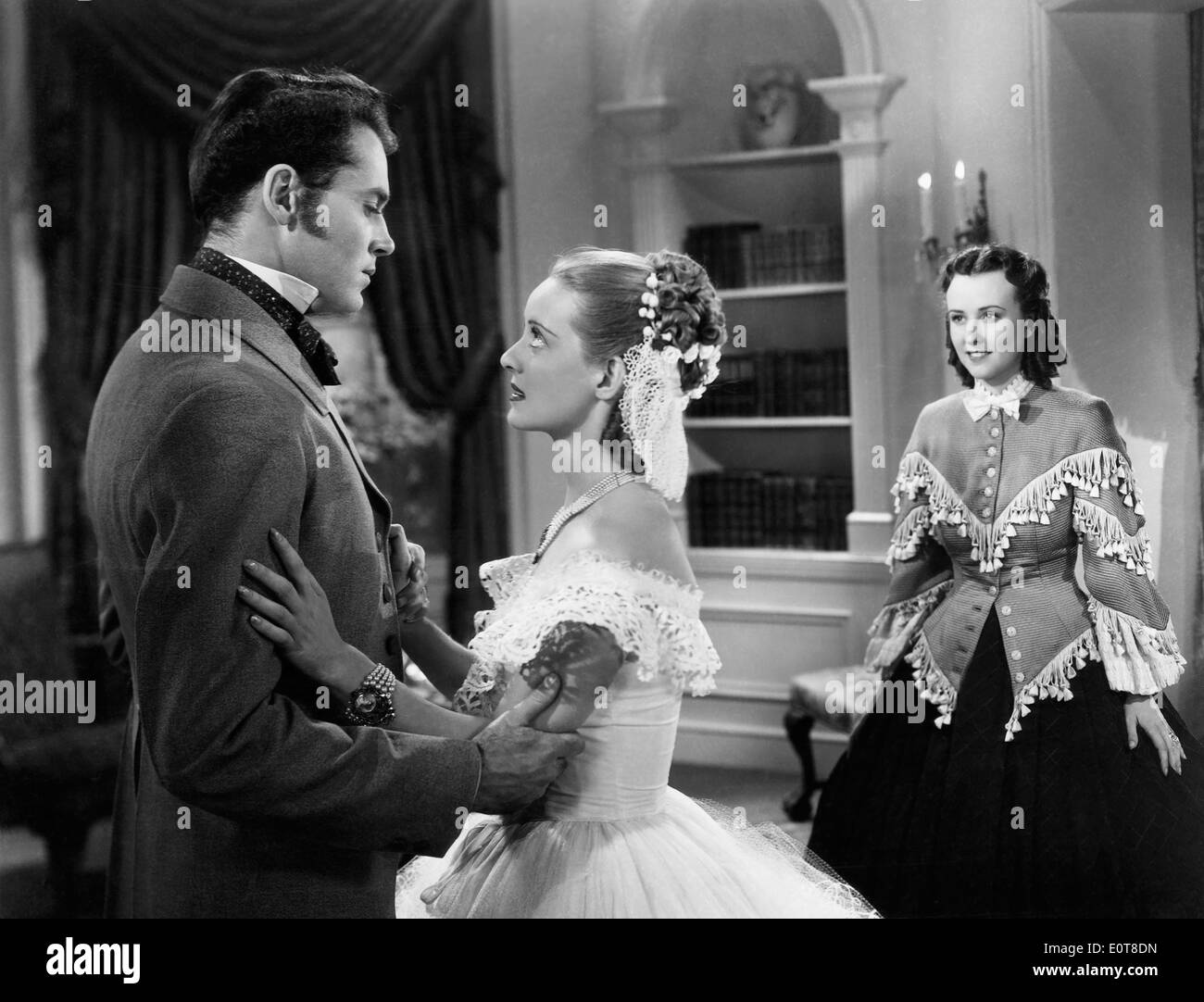
Henry Fonda proved to be one of Davis' strongest leading men though George Brent was just as dull as ever. Bainter won the Best Supporting Actress for her sympathetic Aunt Belle, a surprisingly rich performance that people sometimes tend to overlook...watch her in that scene where she meets Amy for the first time and panics when she realizes Julie has met Amy before Belle could warn her. Bainter gave the performance of her career and the Academy actually noticed. Bouquets to Robert A. Haas's art direction, Orry-Kelly's costumes, and Max Steiner's lush music as well, but the film is really the triumph of the gifted William Wyler and the incomparable Bette Davis.
The year before Vivien Leigh brought the scheming and manipulative Southern Belle Scarlett O'Hara to the screen, Bette Davis brought another scheming and manipulative Southern Belle to the screen named Julie Marsden in an equally epic soap opera called Jezebel that won Davis her second Oscar for Outstanding Lead Actress.

It is 1850's New Orleans where we meet Julie Marsden, a flighty and wealthy Southern socialite who really doesn't care about what's going on between Yankee abolitionists and southern bankers or the yellow fever epidemic that is making its way down south. Julie has never lacked for male attention, including the dashing Buck Cantrell (George Brent) and a handsome banker named Pres Dillard (Henry Fonda). Pres is considering marriage to Julie until she embarrasses him at a prominent social event by wearing a bright red dress to a ball where women are supposed to wear white. Pres manages to embarrass Julie right back but it eventually spells the end of their relationship and as they part, Julie and her Aunt Belle (Fay Bainter) are forced to move because of the epidemic and Julie has become a social hermit until reunited with Pres, but is shocked when Pres shows up with a pretty young wife named Amy (Margaret Lindsay).

William Wyler, who would later direct Davis in The Letter and The Little Foxes, not to mention win three Best Director Oscars, has already begun to show his affinity for cinematic storytelling with this intimate tale told on a grand scale. He also displays as very special understanding of the extraordinary actress cast in the title role and what she is capable of. It's obvious that Wyler had a very specific vision about Julie Marsden and that Davis understood said vision, doing exactly as the director has instructed. Davis was known for independent spirit as an actress but it's clear that Davis is under Wyler's thumb and feels safe there, where she was able to produce a performance of such delicacy and focus that it won her a richly deserved Oscar.

Wyler is to be applauded for bringing a story like this to the screen at a time when the only thing that anyone was talking about in Hollywood was the upcoming screen version of Gone with the Wind, a story that bears more than a passing resemblance to Jezebel. For those who are paying attention, this story takes place almost a decade before the civil war, but instead of the war, we have the yellow fever epidemic as backdrop for the story, which ends up serving as a platform for the central character of Julie to change in a way that Scarlett O'Hara never really does. It should be noted that Davis was very interested in playing Scarlett O'Hara but took herself out of the competition when she heard Erroll Flynn was being considered for Rhett Butler.

Henry Fonda proved to be one of Davis' strongest leading men though George Brent was just as dull as ever. Bainter won the Best Supporting Actress for her sympathetic Aunt Belle, a surprisingly rich performance that people sometimes tend to overlook...watch her in that scene where she meets Amy for the first time and panics when she realizes Julie has met Amy before Belle could warn her. Bainter gave the performance of her career and the Academy actually noticed. Bouquets to Robert A. Haas's art direction, Orry-Kelly's costumes, and Max Steiner's lush music as well, but the film is really the triumph of the gifted William Wyler and the incomparable Bette Davis.
